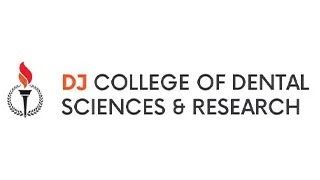- Visibility 358 Views
- Downloads 430 Downloads
- Permissions
- DOI 10.18231/j.johs.v.12.i.2.6
-
CrossMark
- Citation
Oral health status in children undergoing chemotherapy for acute lymphocytic leukaemia: A cross-sectional study with emphasis on paediatric palliative care in a tertiary hospital setting
- Author Details:
-
Sanjeeta Dara
-
A. Latha *
-
Suman jhorar
-
Suman Mahala
-
Varsha Rani
-
Vinkaj Kumari
-
Yogita Chaudhary
-
Thuileiphy Tallanao
Aim: This study Lymphoblastic Leukaemia (ALL), a type of cancer that affects white blood cells. The investigation specifically concentrated on potential oral complications associated with the treatment and aimed to identify correlations with demographic characteristics. The primary objective was to mitigate the risk of additional complications.
Materials and Methods: A consecutive sampling approach was used in a cross-sectional survey conducted among all 56 eligible children receiving chemotherapy for Acute Lymphocytic Leukemia (ALL) at a tertiary care hospital in Western Rajasthan. Socio-demographic and clinical data were documented. The Oral Assessment Guide (OAG) tool was employed to assess the oral health of the participants. Descriptive and inferential statistics were applied for analysis using SPSS version 23.
Results: The study revealed that 69.6% of participants had compromised oral health. Most of the participants were male (66.1%). About 46.4% were in the maintenance phase of chemotherapy. According to the OAG tool, oral mucositis was present in 46.4% of children after the first dose of chemotherapy. Nearly 25% did not have any oral issues. Two-thirds of the participants (66.1%) brushed daily. Oral mucositis correlated significantly (p<0.05) with age, education, age at ALL diagnosis, and frequency of mouthwash use. Pamphlets on oral care for children undergoing chemotherapy were prepared, and demonstrations on oral hygiene were shown to parents and children through videos. Handouts on oral health were also provided.
Conclusion: Chemotherapy for childhood acute lymphoblastic leukemia (ALL) is a risk factor for oral mucositis. Early assessment and monitoring of oral health status can enhance the quality of life for children affected by ALL.
References
- Ali MHM, Nurelhuda NM. Oral health status and its determinants in children with leukaemia at the Radiation and Isotope Center Khartoum, Khartoum State, Sudan. Sudan J Paediatr. 2019;19(2):93-100.
- Asthana S, Labani S, Mehrana S, Bakhshi S. Incidence of childhood leukemia and lymphoma in India. Pediatr Hematol Oncol J. 2018;3(4):115-20.
- Bhojwani D, Howard SC, Pui CH. High-risk childhood acute lymphoblastic leukemia. Clin Lymphoma Myeloma.2009;9(3):S222-30.
- Bhat R, Bhandary A, Karicheri V, Palakki G, Uday M. Antibody- Drug Conjugates: Advances and Applications in Targeted Cancer Therapies. Oral Sphere J Dent Health Sci. 2025;1(2):63-72.
- NG AK, Kenney LB, Gilbert ES, Travis LB. Secondary malignancies across the age spectrum. Semin Radiat Oncol. 2010;20(1):67-78.
- Ninawe N, Bhaje P, Doifode D, Dolas A, Bahadure R, Bahetwar S. Oral health status in children with acute lymphoblastic leukemia undergoing chemotherapy. Ann RSCB. 2021;25(6):19197-2020.
- Quispe RA, Aguiar EM, de Oliveira CT, Neves ACX, Santos PSDS. Oral manifestations of leukemia as part of early diagnosis. Hematol Transfus Cell Ther. 2022;44(3):392-401.
- Mathur VP, Dhillon JK, Kalra G. Oral health in children with leukemia. Indian J Palliat Care. 2012;18(1):12-8.
- Colak H, Dülgergil CT, Dalli M, Hamidi MM. Early Childhood Caries Update: A Review of Causes, Diagnoses, and Treatments. J Nat Sci Biol Med. 2013;4(1):29-38.
- Soares SC, Roux LJD, Castro AR, Silva CC, Rodrigues R, Macho VMP, Silva F, Costa C. Oral manifestations: a warning-sign in children with hematological disease acute lymphocytic leukemia. Hematol Rep. 2023;15(3):491-502.
- Effinger KE, Migliorati CA, Hudson MM, McMullen KP, Kaste SC, Ruble K. Oral and dental late effects in survivors of childhood cancer: a Children's Oncology Group report. Support Care Cancer. 2014;22(7):2009-19.
- Gustafsson A, Skogsberg J, Rejnö Å. Oral health plays second fiddle in palliative care: an interview study with registered nurses in home healthcare. BMC Palliat Care. 2021;20(1):173.
- National Institute of Dental and Craniofacial Research (US). Oral health in America: Advances and challenges. Bethesda (MD): National Institute of Dental and Craniofacial Research (US); 2021. Available from: https://www.ncbi.nlm.nih.gov/books/NBK578297/
- Mathur VP, Dhillon JK, Kalra G. Oral health in children with leukemia. Indian J Palliat Care. 2012;18(1):12-8.
- Wang Y, Zeng X, Yang X, Que J, Du Q, Zhang Q, Zou J. Oral health, caries risk profiles, and oral microbiome of pediatric patients with leukemia submitted to chemotherapy. Biomed Res Int. 2021;2021:6637503.
- Azher U, Shiggaon N. Oral health status of children with acute lymphoblastic leukemia undergoing chemotherapy. Indian J Dent Res. 2013;24(4):523.
- Lalla RV, Sonis ST, Peterson DE. Management of oral mucositis in patients who have cancer. Dent Clin North Am. 2008;52(1):61-77.
How to Cite This Article
Vancouver
Dara S, Latha A, jhorar S, Mahala S, Rani V, Kumari V, Chaudhary Y, Tallanao T. Oral health status in children undergoing chemotherapy for acute lymphocytic leukaemia: A cross-sectional study with emphasis on paediatric palliative care in a tertiary hospital setting [Internet]. J Orofac Health Sci. 2025 [cited 2025 Oct 23];12(2):109-115. Available from: https://doi.org/10.18231/j.johs.v.12.i.2.6
APA
Dara, S., Latha, A., jhorar, S., Mahala, S., Rani, V., Kumari, V., Chaudhary, Y., Tallanao, T. (2025). Oral health status in children undergoing chemotherapy for acute lymphocytic leukaemia: A cross-sectional study with emphasis on paediatric palliative care in a tertiary hospital setting. J Orofac Health Sci, 12(2), 109-115. https://doi.org/10.18231/j.johs.v.12.i.2.6
MLA
Dara, Sanjeeta, Latha, A., jhorar, Suman, Mahala, Suman, Rani, Varsha, Kumari, Vinkaj, Chaudhary, Yogita, Tallanao, Thuileiphy. "Oral health status in children undergoing chemotherapy for acute lymphocytic leukaemia: A cross-sectional study with emphasis on paediatric palliative care in a tertiary hospital setting." J Orofac Health Sci, vol. 12, no. 2, 2025, pp. 109-115. https://doi.org/10.18231/j.johs.v.12.i.2.6
Chicago
Dara, S., Latha, A., jhorar, S., Mahala, S., Rani, V., Kumari, V., Chaudhary, Y., Tallanao, T.. "Oral health status in children undergoing chemotherapy for acute lymphocytic leukaemia: A cross-sectional study with emphasis on paediatric palliative care in a tertiary hospital setting." J Orofac Health Sci 12, no. 2 (2025): 109-115. https://doi.org/10.18231/j.johs.v.12.i.2.6
